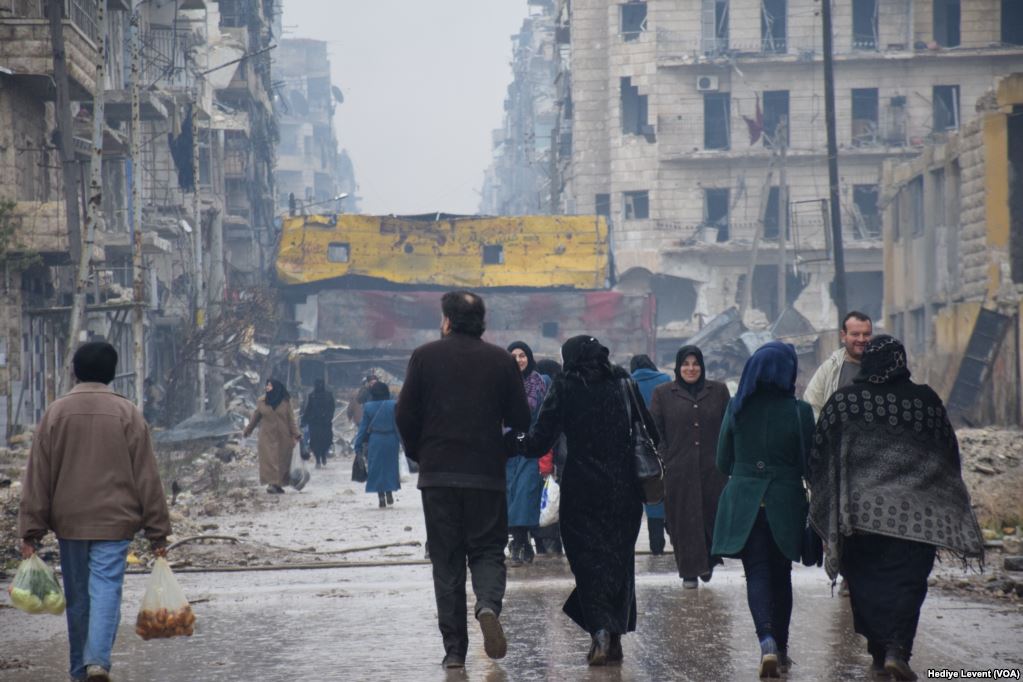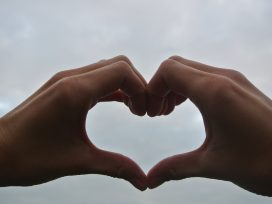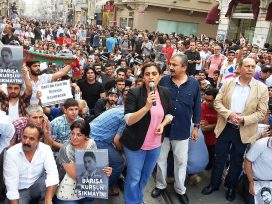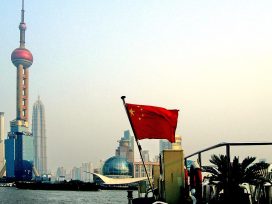The Syrian writer, journalist and dissident Yassin al-Haj Saleh is one of the most prominent voices of the Syrian Revolution. Imprisoned as a communist by the Hafez al-Assad regime from 1980 to 1996, after his release he became an influential leftist voice across the Arab world. In 2012 he co-founded the Arabic–English platform Al Jumhuriya.net. Al-Haj Saleh fled Syria in 2015 after spending 21 months in hiding. His wife, the human rights activist Samira Khalil, is still missing after being abducted by Islamists in liberated Houms in 2013. In this interview with Esprit, held in Paris on 28 March 2025, al-Haj Saleh talks about his political philosophy as well as his hopes and concerns for the future of Syrian democracy after the fall of the Assad regime.
Esprit: You became a writer during your time in prison in Syria from 1980 to 1996. And your experience of prison enables you to analyse contemporary Syria and the world. How do you understand the centrality of the prison question in the Middle East? And how did you react to the opening of Sednaya prison last December?
Al-Haj Saleh: Until I was arrested, my life was not very different from that of any other Syrian student. But I joined the communist opposition and was arrested. At first, I thought I’d be in jail for a few months, or a few years at the most. After a year-and-a-half in prison, we had access to books, in Arabic and English (I learnt English in prison). I became a writer because I spent thirteen and a half years reading in prison. The last year I couldn’t read, after being transferred to the notorious Tadmor prison. In a way, I’m a graduate of the Syrian prison!
I was studying medicine when I was arrested: I eventually got my degree, but I never practised medicine. I wanted to belong to the world of writers, thinkers and intellectuals. What I loved was reading and writing. It was my prison experience that shaped me, because it engulfed my youth in fear, hunger and torture. It left a profound mark on my body and soul and reconfigured my perception of the world.
In my work, I try to look at Syria from a broader perspective. Syria is part of the world, and you can’t talk about it without mentioning the Shoah, the Gulag, the genocides and the tragedies of the first two decades of the twenty-first century. Without making comparisons, my work draws on the writings of Varlam Shalamov, Primo Levi and Jean Améry, who are my comrades. Because of my experience of prison, the idea of freedom has become central to my work: to write about prison is to write about freedom. The three essays now published in France attempt to conceptualise the freedom invoked in the slogans of the Syrian revolution.
The opening of Sednaya prison was a powerful symbol. After 2006–2007, it became the most famous prison in Syria, just as Tadmor was in the 1980s and 1990s. Freeing the prisoners and letting people see for themselves the Assad regime’s factory of power is a distilled form of the country’s liberation. I went there myself earlier this year, and it reminded me of the Aleppo prison where I spent several years. It is a combination of unhealthy decay and bloodthirsty cruelty. As such it’s a good representation of the two aspects of Assad’s rule. I hope that no one will be imprisoned there again.
Esprit: The concept of prison is part of your idea of the ‘Syrianisation of the world’. You write that to be free, you have to emancipate yourself from nations. But after the fall of Assad, isn’t the nation the basis on which the country is trying to rebuild itself?
Al-Haj Saleh: When the Syrian uprising and the Arab Spring began, we were hopeful that Syria would move closer to the rule of law, with pluralism and decency in political life. But the country sank into chaos. Syria was – and still is – home not just to two world powers, the United States and Russia, but also three regional powers, Iran, Turkey and Israel, as well as numerous sub-state actors. A large part of the world is in Syria, and seven million Syrians (30% of the population) are refugees in one hundred and twenty-seven countries around the world.
What’s more, instead of Syria moving closer to international standards of the rule of law, the world has moved closer to Syrian . We can see this with Trump and the rise of rightwing populism in the US and Europe, as well as with authoritarianism in Russia, China, Turkey and elsewhere. This is what I mean by the Syrianisation of the world: Syria has become a microcosm of the world, while the world has become a macrocosm of Syria.
I’m a universalist: I defend universal values, while being critical of the Enlightenment tradition, androcentrism, eurocentrism and so on. And I’m a cosmopolitan: I love Paris and Berlin, because you can hear different languages and meet people of different origins. If I had to go back to Syria, I would miss these cosmopolitan cities. But by ceasing to be a country, Syria led me to cosmopolitanism.
Syria is not yet a nation-state: much of the outside is inside the country and much of the inside is outside the country. What’s more, there are many Syrias within Syria: the American-dominated north-east through the Syrian Democratic Forces; a special situation in Suwayda, where the Druze are the majority; the Israeli-occupied Golan Heights… In a sense, Syria is an anti-nation state, and that’s what makes it interesting to the rest of the world.
Freedom consists of emancipating oneself not only from the nation, but also from borders, religion, traditions. This means questioning one’s allegiance to the nation, to certain ideals or ideologies, but also to the times in which we live. The revolt has been swept along by a general movement to break free from all forms of confinement. This demand would remain even if Syria were to become a nation state. We must never accept the nation as an absolute: nations have not always existed in history, and the time will come when they will no longer exist.
Esprit: You advocate the separation of religion and sovereignty. Is thus secularism à la française?
Al-Haj Saleh: The French are too cautious about public expressions of religion. This is understandable in view of the country’s history, as is the secularism of the Kemalists in Turkey, but it is not mine.
In Arabic, secularisation usually means the separation of religion and politics. But what I defend is the separation of religion and sovereignty, which is not quite the same. By sovereignty I mean the state’s monopoly on violence and its sole authority to demand universal allegiance. I have no problem with the existence of Islamist parties. In our modern history, the exclusion of Islamists has always accompanied the exclusion of secularists and democrats. In Syria, Tunisia, Egypt, everywhere, the exclusion of one particular group ends up affecting everyone.
Under Hafez al-Assad, Islamists were treated much more harshly than democrats, and were the most frequent victims of arbitrary executions. But we were all in prison together. My problem is that these Islamic parties don’t want to play the game: they want sovereignty, in other words to be the state and not a party among other parties. I defend the existence of Islamist parties, but they should abandon the project of capturing the state. We need a historical compromise: Islamists are admitted into national politics in exchange for giving up the goal of sovereignty for good.
It’s not easy to work with Islamists, whether it’s the Muslim Brotherhood or, a fortiori, the jihadists. The group currently in power in Syria, Hay’at Tahrir al-Sham (HTS), originally comes from a jihadist background, but has been showing signs of a policy of national inclusion, albeit top-down. By that I mean including Syrians as members of communities rather than of political parties, not to mention as individuals and citizens.
In Egypt, governing with Islamists didn’t work; in Tunisia, it worked for a while, but it didn’t last. In Syria, many voices within the National Coalition of Opposition and Revolutionary Forces were raised against the dominance of the Islamists and their desire to control everything. Today, we are still faced with the problem of the arrogance of the Islamists and their desire to dominate everything.
Al-Sharaa is not seeking to impose an Islamist government, but it would be a mistake to believe that the country is heading towards democracy. Instead, the HTS leader is pursuing a ‘politics of notables’: politics is represented by well-known, wealthy men, tribal chiefs and community leaders. Instead of developing Syrian civil society, the politics of the notables is a form of conservatism that reproduces and reinforces traditional structures.
Esprit: You propose renewing Syrian politics by including those ‘absented’ by the Assad regime. What would such a policy involve and how could it be implemented in Syria, particularly in terms of transitional justice?
Al-Haj Saleh: Since Athenian democracy, certain categories of the population have been excluded: women, slaves, foreigners, etc. This structure of exclusion is still present in modern democracies, particularly for women, the poor and migrants, especially if they are coloured or Muslim. These excluded people make up what I mean by ‘the absent’. If democracy is a dialogue between you and me, ‘he’, ‘she’ and ‘it’ are not represented – ‘it’ being life, the biosphere, the environment that is being destroyed. The absent person is the third person who is not invited to the democratic conversation.
Revolutions are openings through which the absent impose themselves on politics. This is the case with the French, Russian and Syrian revolutions: those who had been excluded from politics imposed their presence, those who had been silenced began to speak for themselves, those who had been made invisible became visible. Democracy finds its vitality in the inclusion of the previously excluded. One extreme case of absence concerns enforced disappearances. As you know, I’ve been there.
The personal and collective experience of extreme suffering has led me to reflect on the relationship between suffering and meaning. In Arabic, there is an etymological link between mua’nat (‘suffering’) and ma’na (‘meaning’). Recently, I’ve developed the idea of a politics of meaning: creating meanings helps us to better represent our experiences, understand our suffering and deal with our trauma. This idea responds to the condition of exiled people, those who live with a sense of injustice, who are forbidden to mourn, who suffer under the unequal distribution of ‘grievability’. For me, it had a therapeutic effect, like a theodicy.
As I became aware of this dimension, I introduced a third term, which also has an etymological link with mua’nat and ma’na: inaya, ‘care’. I no longer accept the idea of associating all our pains with meanings, and thus curing them, as Victor Frankl’s logotherapy postulates. This approach leaves no room for meaninglessness. To combat nihilism, we need to recognise that some suffering has no meaning. Lately, I’ve been leaning towards a policy of rifk – meaning ‘attention’, ‘kindness’ and ‘good company’– as opposed to ‘violence’, from which rafik, ‘comrade’, is derived.
Transitional justice is the most important political issue in Syria today. However HTS is more interested in avoiding inter-community conflict and stabilising the country, and is therefore leaning towards a general amnesty. Its imagination is marked by the example of the prophet Mohammed who, when he seized Mecca, told the inhabitants: ‘Go, you are free.’ But it is important to understand that millions of Syrians have been directly affected by enforced disappearances and summary executions, not to mention the destruction of war. The demand for justice comes not only from the political elite, but also from the people, supported by human rights defenders. Indeed, it is the ethical content and legal articulation of the revolution itself., which was not just a question of overthrowing the regime.
The current government is afraid that a global transitional justice system will turn against its members, because they too have committed crimes. Transitional justice, if it is supported by the HTS at all, will be reserved only for the crimes of the regime. These are certainly the most numerous crimes. But my wife, my brother and my friend, for example, were not kidnapped by the regime… There is going to be a battle over this. And it will be the yardstick by which the transition in Syria will be judged.
Esprit: How do hope and despair fit together in your experience?
Al-Haj Saleh: The question of hope and despair has been with me since my early years in prison in the 1980s. Back then, I thought that hope was a matter of choice, that you chose to see the world with hope rather than despair. Hope, I believed, was not the conclusion of a rational analysis of the conditions in which we live. There were no convincing reasons for either hope or despair.
But in the course of those long, seemingly endless years in prison, I began to see that the best way to free yourself from despair was to free yourself from hope. I even drew from this a piece of advice for myself and others: to stay engaged in public life, start from despair and not from hope. You need to master the art of despair so that people never stop fighting for change, even if the struggle seems hopeless.
In the course of the Syrian struggle, with its considerable losses, I coined a term to describe the murder of hope: ‘speicide’. For me, the Syrian tragedy cannot be summed up simply as the murder of hundreds of thousands of human beings; it also involved the denial of any meaning to the extreme suffering of the Syrian people. It was the mass murder of hope and the mass production of despair.
Today, I tend to think that it’s a mistake to place hope and despair at opposite poles, as we usually do. Hope lies beyond despair, but in the same direction, so that you can’t reach hope without going through despair and carrying it with you. Despair is simply closer to us than hope.
Esprit: How can Al-Jumhuriya contribute to public debate in Syria? Can we count on uncompromising journalists, academics and judges to rebuild the country?
Al-Haj Saleh: The fall of the regime has thrown the members of the magazine, myself included, into crisis. We had been hoping for this for many years, but the speed of the collapse took us by surprise. It has called into question a number of projects and raised the question of our possible return to Syria. We have to recognise that our enemy has gone and that a new power is now in place, one that we see not as an enemy but as a political adversary. The good news is that our team in Syria is growing. But we need time to find out how to enter the public debate, where there are still no newspapers apart from Al-Watan, which is available on online.
As far as academics are concerned, I’m not so sure. Our best intellectuals are either dead or in exile. We don’t have any good universities, particularly in the humanities. Syrian universities need a thorough overhaul. For the moment, the new government has merely renamed them. Moreover, historically, Syrian universities have been closer to the State than to society, and intellectual life has developed outside academia.
Lawyers are more active and respond to popular demand for debate. The trade unions, on the other hand, have been at a standstill since they became subservient to the Baathist regime in 1981. The new regime has not indicated that it wishes to promote their independence. Yet for the reconstruction of a genuine civil society in Syria, the trade unions are of greater strategic importance than the political parties.
Esprit: Does the history of the Iranian revolution help you to think about the current situation in Syria?
Al-Haj Saleh: The Iranian revolution is fresh in the minds of many Syrians. But the supporters of democracy are not in the situation of the secular Iranians active in the revolution before being excluded and even executed by the Khomeini regime. Indeed, the most ardent opponents of the Assad regime still live in exile and are not involved in the new political configuration.
After the massacre of Alawites in the coastal regions in March, the mood is much less positive. The opposition in exile, to which I belong, is trying not to make the situation worse. If we’re not going back to Syria, it’s mainly because we don’t feel victorious. We are happy that the regime has been overthrown, and that Bashar al-Assad and his henchmen have been forced to leave in such a humiliating way, but this victory does not belong to us.
If more violence takes place in Syria, which is quite likely, it will be between the more moderate Islamists and the extremists, a division that also runs along Syrian-national and international jihadist lines.
Esprit: Why do you call yourself a writer and not an intellectual or a philosopher? Does it have to do with your poetic style?
Al-Haj Saleh: Nobody in the Arab world calls themselves an ‘intellectual’, let alone a ‘philosopher’ – that’s something other people can say about you at best. I care about language, I love words and forging new expressions, especially in Arabic, which allows great flexibility. As such, I consider myself a writer or an essayist. However, it is only in France that people comment on my poetic style. I think it comes out from my love of words, and the French love of style.







